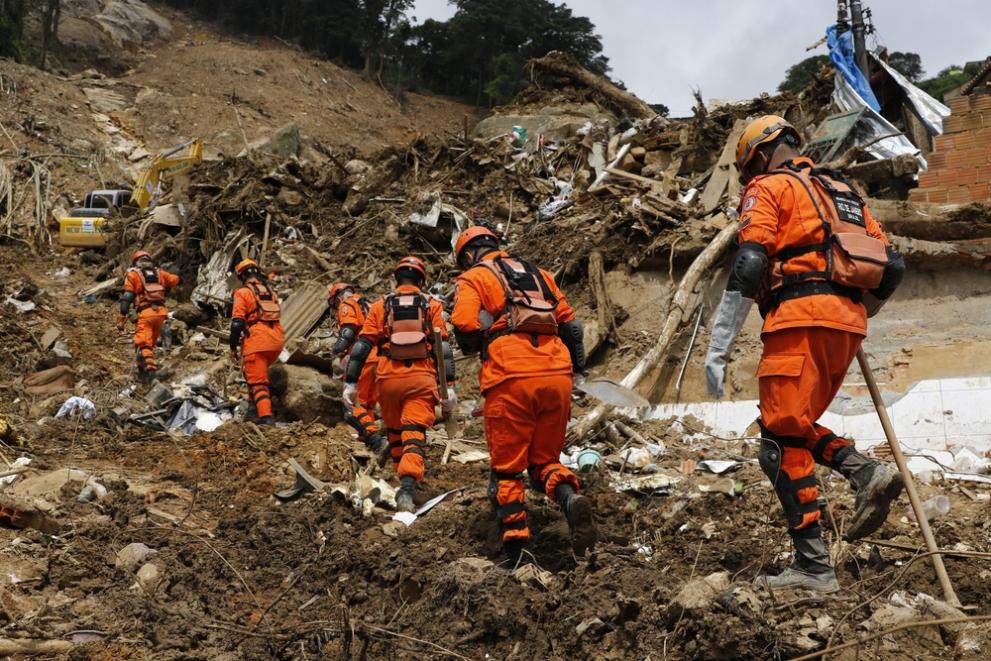
October 13th is the International Day for Disaster Risk Reduction. The day was established by the United Nations General Assembly to promote a global culture of disaster risk reduction. This year’s theme is building effective early warning systems.
Early warning systems save lives. As the climate crisis continues to cause unprecedented catastrophes around the globe, effective early warning systems will become ever-more essential.
The European Research Executive Agency (REA) manages several EU-funded projects that are researching natural disasters and how to respond to them, the following of which can be read bellow.
These projects are funded by the European Union under Horizon Europe, the European Union’s current framework for funding research and innovation (2021 – 2027).
Risk Awareness and Planned Preparedness
The Engage Society for Risk Awareness and Resilience project (ENGAGE) shows how, in the case of disasters, individuals and local practices can interrelate effectively with planned preparedness and responses. To achieve this goal ENGAGE is starting with the knowledge, strategies and practices used by local citizens. They then combine and extend these to create innovative solutions to natural disasters using technology. Their model for assessing improvements to societal resilience is complemented by an evolving knowledge platform using empirical data on individual and collective contributions to societal resilience. Real world field validations are used to demonstrate and validate the projects solutions and their transferability to diverse contexts across Europe.
Find out more about ENGAGE
Building Resilience in Communities
The Resilient Europe and Societies by Innovating Local Communities project’s (RESILOC) core objectives are to understand resilience in societies and local communities. The project is developing resilience planning and strategies for pilot projects that are representative of a wide range of local communities and provide an extensive comparative analysis of European diversity. Already existing tools will be enriched and adapted to the specific needs of the community in preparedness and prevention phases. The project has a strong focus on understanding the local culture and particularities of local communities in crises situations.
Find out more about RESILOC
Social Media and Disaster Resilience
Social media can be a useful tool in building resilience. That is why Strengthening Links between Technologies and Society for European disaster resilience project (LINKS) aims at understanding and assessing its effects, and using Social Media Crowd-Sourcing (SMCS) for European disaster resilience. The project is developing a framework which can be used to understand, measure and govern SMCS for disasters. This takes into account the diversity among Disaster Risk Perception and Vulnerability (DRPV), Disaster Management Processes (DMP) and applied Disaster Community Technologies (DCT) across European communities.
The LINKS framework consists of scientific methods, practical tools, and guidelines addressing researchers, practitioners and policy makers. The Framework is developing through five practitioner-driven European cases, representing different disaster scenarios. These are earthquakes, floods, industrial, terrorism, drought and diverse socioeconomic and cultural settings in four countries: Italy, Germany, Denmark, and the Netherlands.
Find out more about LINKS
Further information
Interested in furthering research into European resilience to natural disasters? Read the Civil Security for Society Work Programme 2021 – 2022 for more on upcoming calls.
Projects that relate to natural disasters are funded through Horizon Europe – Cluster 3: Civil Security for Society. Check out the Funding and Tenders Portal for further information on all EU-funding.
Details
- Publication date
- 13 October 2022
- Author
- European Research Executive Agency
